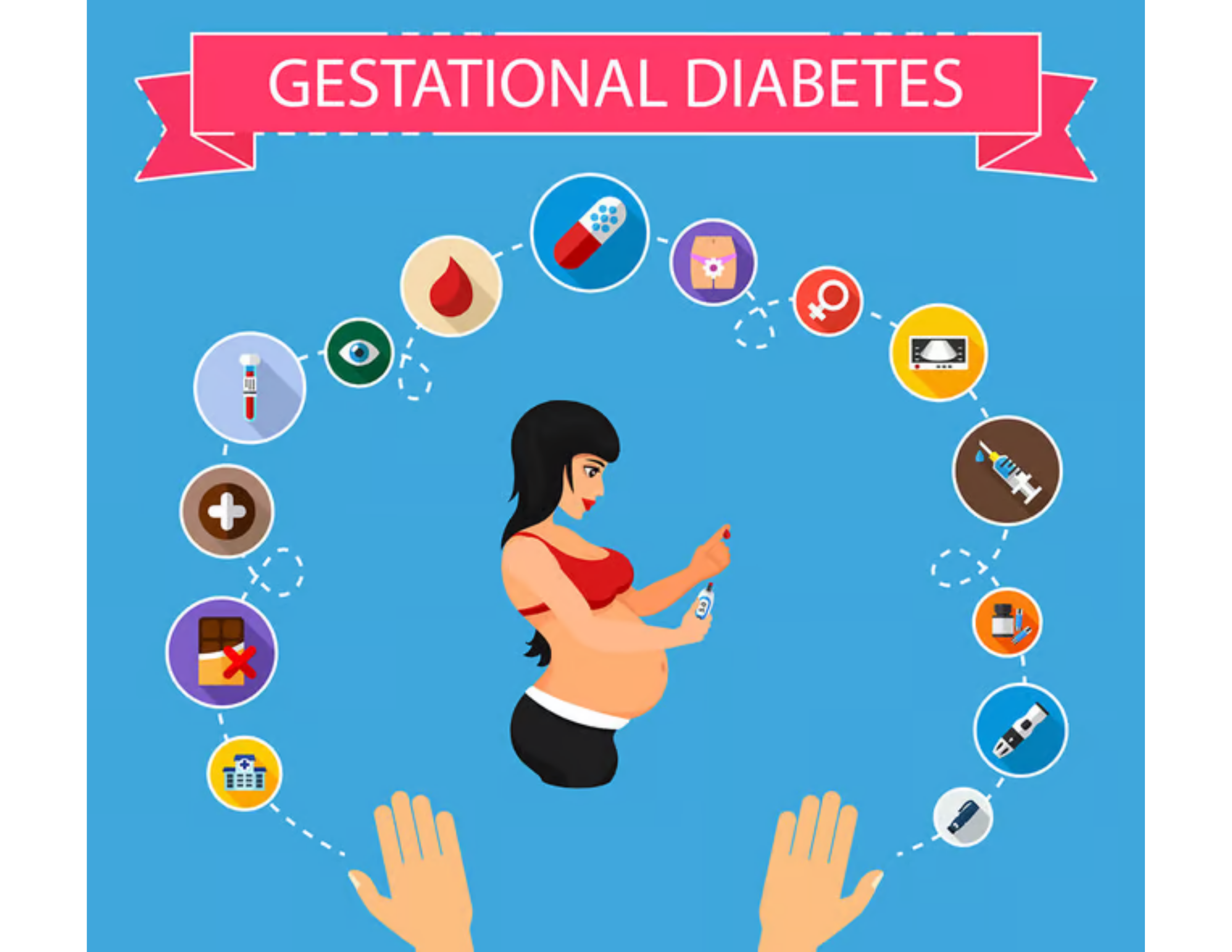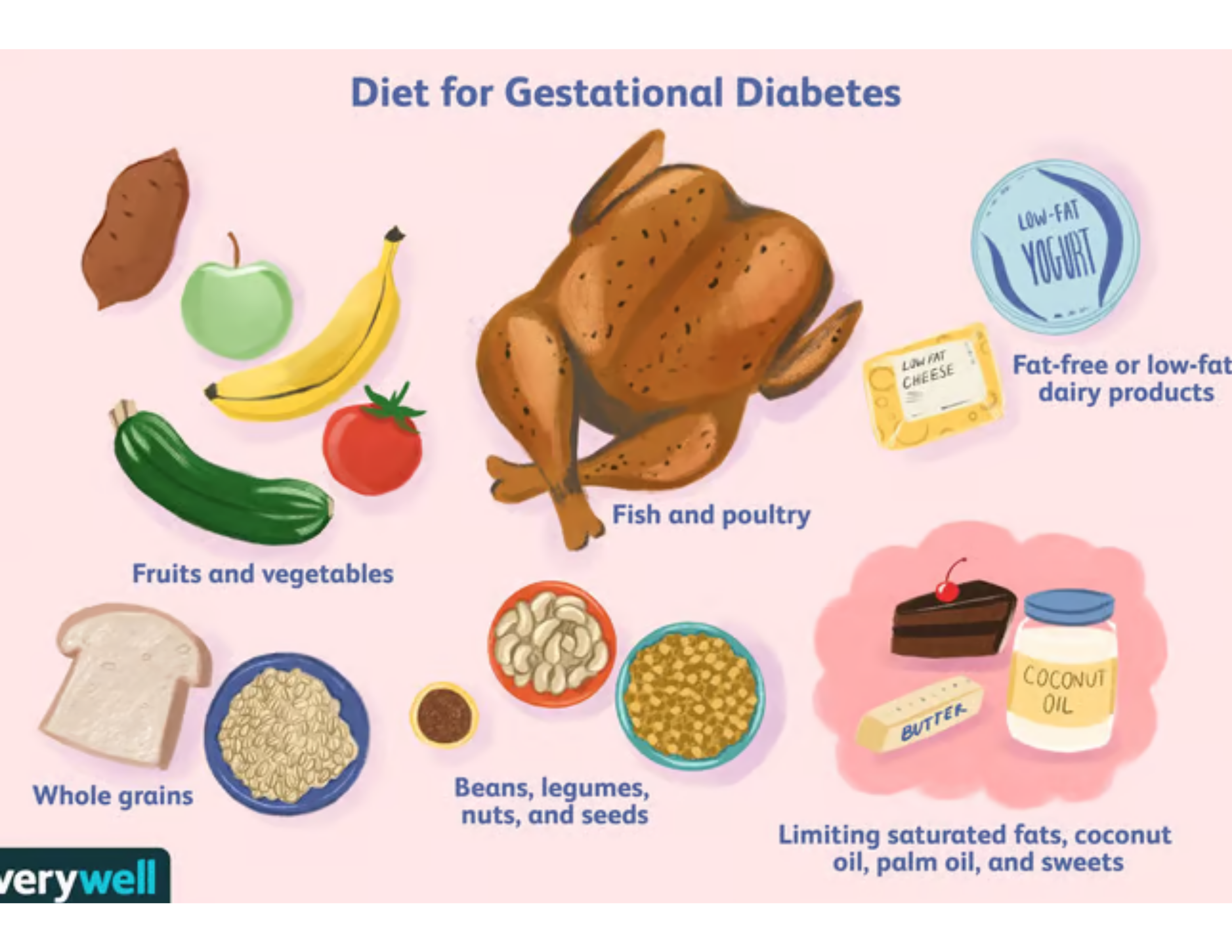Gestational Diabetes: Early signs, causes and management
5 minute read, Written By: Momly
Have you heard of diabetes during pregnancy? Don’t be surprised. Gestational diabetes is highly prevalent condition that occurs during pregnancy. Effective management is critical for lowering risks associated with gestational diabetes. We highlight some of the powerful ways to control symptoms and reduce blood sugar levels.
What is Gestational Diabetes?
When your sugar levels rise too high during pregnancy, it is called as gestational diabetes. Your body shows insulin resistance due to hormonal changes in pregnancy. A routine blood test is used to tell if your sugar levels are in the normal range.
Gestational diabetes and baby’s growth and development do not go hand in hand. Gestational diabetes affects fetal health and can lead to various complications in pregnancy. The result of having high sugar while pregnant can result into conditions like preeclampsia, larger babies (birth weight on the higher side), and preterm birth. Having gestational diabetes increases the chances of type 2 diabetes in the long run for mothers.

Early symptoms of Gestational Diabetes
It is characterized by wide range of symptoms like increased thirst, fatigue or loss of energy, blurred vision and urge to urinate frequently. If you are experiencing such symptoms in your early months of pregnancy, it is advised to take a gestational diabetes test.

Reduce sugar levels without meds: 5 Magical tips
1. Yoga - Yoga is a type of exercise that improves both physical and mental wellness. Yoga practise on a regular basis can benefit overall health, including endocrine, cardiovascular, and gestational diabetes. Gestational diabetes involves combination of healthy diet, fitness and techniques to reduce stress. Doing yoga helps you manage the symptoms of gestational diabetes and leads you on the path of healthy pregnancy. There are certain yoga asanas that you can practice to gestational diabetes flareups and boost your metabolism to manage your weight.
2. Diet and Nutrition – Eat a balanced diet rich in all food groups in gestational diabetes. The foods rich in fiber, anti-oxidants, anti-inflammatory foods, the foods low in glycemic value and healthy fats and carbs lowers the condition from getting worsening. Avoid sugar rich foods and packaged snacks. It can lead to weight gain and obesity during pregnancy. To avoid excess weight, eating mindfully and avoiding emotional eating is must. Avoid skipping meals and be watchful of what you eat.
3. Lower your carb intake – Your carb intake should not be at a stretch in one sitting. Spread out carb consumption in regular intervals so that there is no surge in sugar levels.
4. Drink water – Staying hydrated is advisable all throughout the three trimesters. Water is an important component of nutrients that removes toxins from your body and maintains your bodily functions. It helps in regulating your sugar levels so that too much of it doesn’t get deposited in your blood.
5.Prenatal counselling – A regular visit to prenatal counsellor builds confidence to manage this condition. As gestational diabetes management takes a toll on your mental health, seeking help to address your stress and anxiety will strengthen your mindset and keeps you positive. Join a support group to vent and share your thoughts and ideas about gestational diabetes. Know different approaches from other mothers who have lived with this condition during their pregnancy.
Gestational diabetes – When do you have to take a test?
Between 24th to 28th week, you will have a prenatal screening to check blood sugar levels. The glucose challenge test and oral glucose tolerance test will determine the sugar levels in your blood. If the test in glucose challenge test shows rise in glucose, you will have a round of oral glucose tolerance test to confirm.
Why should you visit a prenatal diet consultant?
Prenatal diet consultant is an expert who have knowledge about maternal nutrition. He or she works closely with you to learn about your medical history, eating preferences, and body type. They provide personalised treatment as well as custom-made healthy food alternatives to fulfil nutritional needs. They will show you several techniques to regulate your weight so that your body can keep hormone fluctuations in check and your sugar levels stable. Seeing a prenatal diet expert can help you rule out gestational diabetes and prepare for a healthy pregnancy by advising you on food and lifestyle changes.




